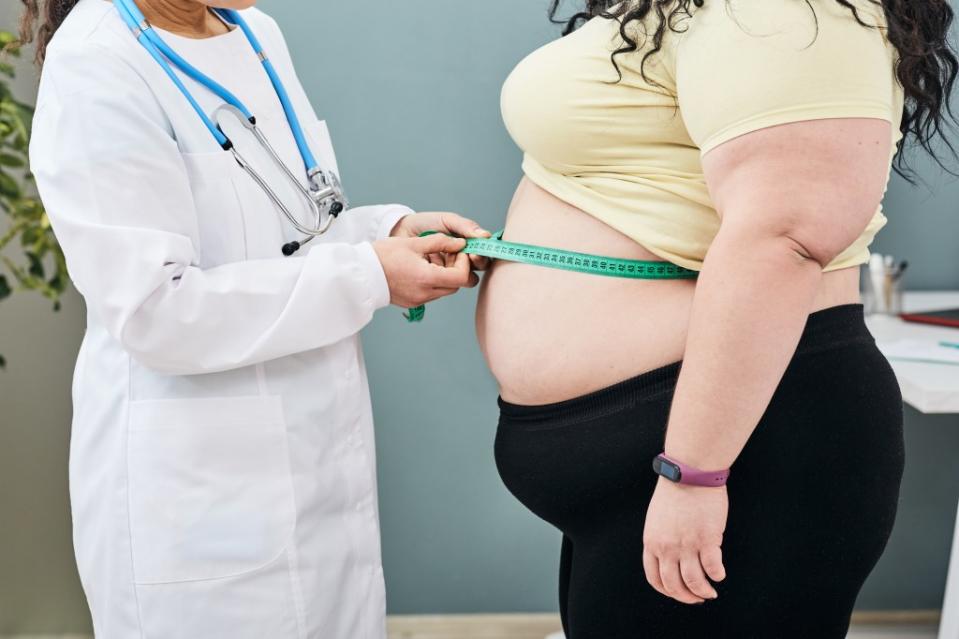Doctor reveals when to eat breakfast and dinner to burn belly fat

Stop wasting your time — a Florida physician is sharing the best times to chow down to shrink your waistline.
“Initiating your day at 6 a.m. and concluding activity by 10 p.m. aligns with the body’s natural circadian rhythms,” Dr. Naheed Ali told Britain’s GB News last month. “Incorporating this approach into meal timing, particularly for breakfast and dinner, can further enhance the body’s ability to burn belly fat.”
Some 53% of Americans suffer from abdominal obesity. Subcutaneous fat is the belly fat you can see and pinch. Visceral fat — fat stored deep in the belly, surrounding the stomach, liver, and intestines — can be the most dangerous type of fat because it secretes toxic substances that increase blood pressure and cause inflammation.
Restricting eating to certain times has been shown to reduce visceral fat.
“Breakfast should ideally be consumed within an hour of waking up, around 7 a.m. to jumpstart the metabolism,” Ali recommends.
He added: “Dinner, on the other hand, should be consumed at least two to three hours before bedtime, around 7 p.m., to ensure that the body has ample time to digest the meal before the metabolic rate slows down during sleep.”

Metabolism is the process of converting food into energy. Those with a fast metabolism burn more calories — even at rest.
One study found that the body burns the fewest calories during the late “biological” night and the most calories in the “biological” afternoon and evening.
Research from 2019 recommended eating two to three meals a day, especially breakfast; making the last meal of the day between 3 and 4 p.m.; avoiding late-night snacking; and fasting for 12 to 16 hours.
Following that schedule may decrease cholesterol, inflammation, and hunger while improving circadian rhythm, which is the 24-hour biological clock that controls your sleep pattern, hormone release, appetite, digestion, and body temperature.

The researchers noted that finishing eating so early in the day “may not be desirable or feasible for many individuals, as it represents a paradigm shift from traditional eating patterns in many parts of the world.”
If that’s the case, they advise consuming most of your calories earlier in the day or implementing a significant fasting window.

Ali, meanwhile, says his schedule “supports insulin sensitivity and helps manage hunger hormones throughout the day, thereby aiding in the reduction of belly fat.”
Insulin is a hormone produced by the pancreas that regulates blood sugar levels. Belly fat and a sedentary lifestyle can result in insulin resistance, which can lead to prediabetes and Type 2 diabetes.
Solve the daily Crossword

